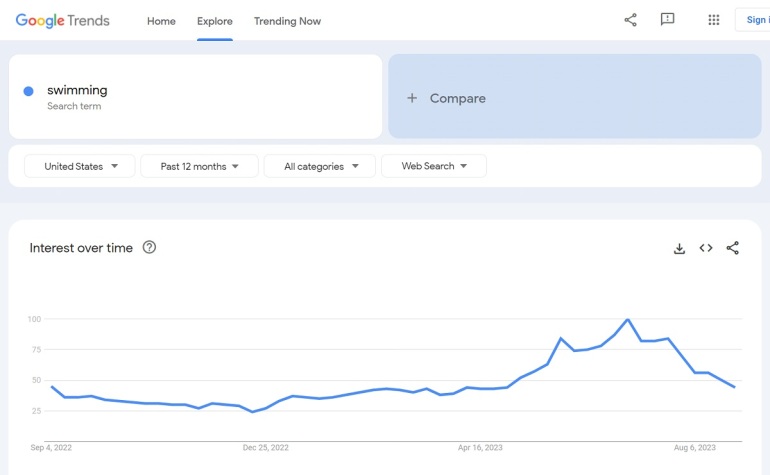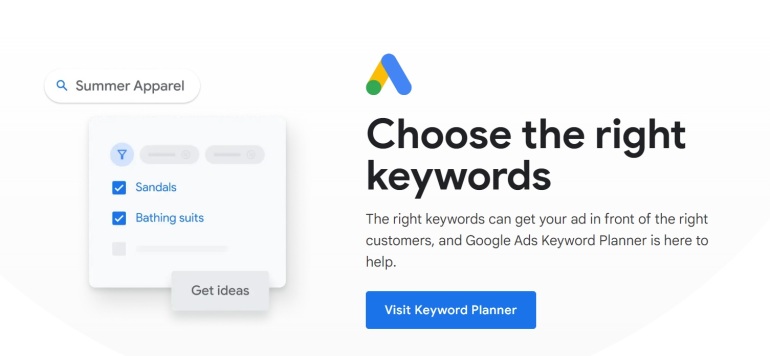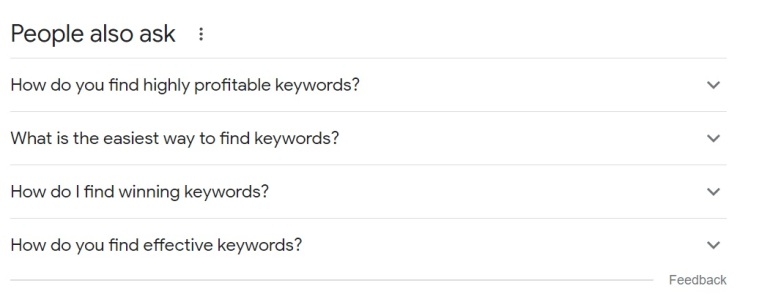Wondering how to find profitable keywords easily?
Then you are in the right place.
Check out this post and learn about the different methods and how to use them to find profitable keywords easily.
How To Find Profitable Keywords Easily

Finding profitable keywords is like picking the juiciest fruit from a tree to make the best fruit salad.
Here are a few simple ways to do it:
Google Autocomplete
When you start typing a search query into Google, it predicts and suggests the rest of your query based on what’s popular.

This can provide you with insights into the common phrases and questions people are searching for
To use it, begin typing your main keyword and take note of the suggestions that pop up.
These are potential keywords to include in your content.
Related Searches
After doing a search on Google, scroll down to the bottom of the search results page.

Here, you’ll find a section titled “Searches related to…” that offers variations and extensions of your original query.
These related searches can inspire additional keywords to target in your content.
Google Trends
Google Trends allows you to explore the popularity of a keyword over time.
You can see when a keyword is trending or if it has a consistent level of interest.

It’s particularly useful for identifying seasonal trends or timely topics within your niche.
Use it to make informed decisions about when to focus on specific keywords.
Keyword Planner
The Keyword Planner, part of Google Ads, provides data on search volumes, competition, and suggested bid prices for keywords.

Start by entering your main keywords, and it will offer insights into related terms.
Pay attention to the average monthly searches and competition levels to prioritize the most impactful keywords for your content.
People Also Ask
While searching on Google, take note of the “People Also Ask” section.

This area displays additional queries related to your initial search.
Including these terms in your content can make it more comprehensive and relevant to a wider audience.
LSI Keywords (Latent Semantic Indexing)
LSI keywords are words and phrases that are semantically related to your main keyword.
Search engines use these to understand the context of your content better.
For example, if your main keyword is “apple,” LSI keywords might include “orchard,” “fruit,” or “nutrition.”
Use them naturally to enhance the overall relevance of your content.
From Competitors
Tools like SEMrush or Ahrefs allow you to analyze your competitors’ websites. Enter their domain, and you’ll see what keywords they’re ranking for.
This information helps you understand their strategy and discover opportunities they might be overlooking.
It’s not about copying but learning from successful players in your field.
Search Intent Terms
Consider the intent behind a user’s search.
Are they looking for information, ready to make a purchase, or seeking a specific service?
Align your content with the user’s intent.
For example, if someone is searching for “best budget smartphones,” they likely have the intent to purchase, so your content should provide helpful buying guides.
Keyword Tool
A keyword tool is a comprehensive solution that often combines features from various methods mentioned earlier.
It might include autocomplete suggestions, search volumes, related searches, and competition analysis.
These tools streamline the keyword research process, providing a one-stop-shop for finding profitable keywords.
From Amazon
Amazon is a massive e-commerce platform with a wealth of customer insights.
Explore product listings, customer reviews, and categories related to your niche.
Look for frequently used terms and phrases.
Shoppers express their needs and preferences in these spaces, giving you valuable keyword ideas for your content.
Conclusion
That’s all about how to find profitable keywords.
Remember, the key to effective keyword research is combining these methods and understanding the unique needs and behaviors of your target audience.
It’s like putting together a puzzle where each piece contributes to the bigger picture of a successful SEO strategy.
